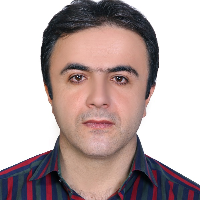The effectiveness of spousal abuse model training on reducing the tendency to divorce women
The aim of this study was the effectiveness of teaching the model of spousal abuse on reducing the tendency to divorce women referring to counseling centers in Sanandaj.
The method of the present study is a quasi-experimental research of pre-test-post-test and follow-up with a control group. The statistical population of the study included all women referring to divorce counseling centers, welfare, social emergency and counseling centers in Sanandaj in 2021, which were selected using the available sampling method of 400 people. Out of 400 people, 30 women who received a high score in the Roosevelt, Johnson and Moro (1986) Divorce Tendency Questionnaire and were willing to participate were selected by available means and divided into two experimental groups (15 people) and a control. (15 people) were included. After training the model based on the training protocol developed by the researcher (the control group did not receive any training), the post-test was performed. Data were analyzed using repeated measures analysis of variance and SPSS-22 software.
The results showed that because the level of significance obtained for the analysis of variance with repeated measures is less than 0.05, so there is a significant difference between the tendency to divorce couples in the experimental group and the control group and the tendency Divorce of couples (F = 6.42, P = 0.017) in the experimental group is less than the tendency of divorced couples in the control group.
It can be concluded that the causal model of spousal abuse has an effect on reducing the tendency of couples to divorce. By teaching spousal abuse, the behavior of spouses towards women in society can be changed and the occurrence of violence and spousal abuse in marital relationships can be prevented, and finally, further harms can be prevented.
-
The effectiveness of the model of marital compatibility based on the dimensions of intelligence on the moral intelligence of compatible and incompatible couples in Kermanshah
Sadreh Nadri, *, Hasan Amiri
Journal of Psychological Sciences, -
Comparison of the Effectiveness of Psychodrama and Integrative Behavioral Couple Therapy (ICBCT) on Improving Dyadic Adjustment between Couples in Tehran 2019
Paria Mozhgani, *, Hamzeh Ahmadian, Yahya Yarahmadi
Journal of Social Work,


